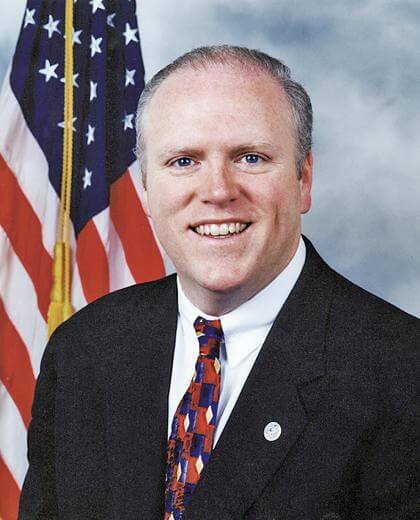By Jeremy Walsh
While a $700 billion economic bailout package passed last week by Congress did not cause an immediate upswing in the beleaguered stock market this week, there was hope in Queens that the borough would be spared an economic meltdown.
Small banks in the borough saw the rescue effort as a positive, Flushing businesses had yet to feel the crunch of the economic downturn and immigrants in the borough continued to hold on despite grim job prospects.
In Washington, Queens politicians expressed relief that Congress passed the plan the second time around, but U.S. Sen. Charles Schumer (D−N.Y.) warned that the lingering worldwide credit crunch could seriously damage the country’s small businesses.
The Emergency Economic Stabilization Act passed the House 263−171 after the U.S. Senate approved it 74−25 last Thursday. All Queens delegates in the House and presidential candidates U.S. Sens. John McCain (R−Ariz.) and Barack Obama (D−Ill.) voted in favor of the package, which was immediately signed into law by President George W. Bush.
Queens’ community banks expect they will struggle to offer as many loans to people as the global credit market tightens, but officials were enthusiastic both about the temporary increase in the Federal Deposit Insurance level to $250,000 for private savings accounts and their own reputations in the wake of the subprime lending crisis.
“I think community banks have taken the high road. This is Wall Street, mainly,” said Ridgewood Savings Bank President Bill McGarry, referring to whose mistakes caused the economic crisis. “They are the ones that got into marketing these toxic things and selling them around the world.”
Meanwhile, Flushing’s Main Street appears to be suffering less from the turmoil on Wall Street than the hypothetical “Main Street” of presidential campaign rhetoric.
“We’re not immediately feeling the effects, but we know it’s coming,” Flushing Chinese Business Association President Peter Koo said. “Most businesses have been preparing.”
The economic downturn is hurting recent immigrants to Queens, however. Andrew Friedman, the co−executive director of Make the Road New York, an immigrant advocacy group with offices in Queens, said immigrants are cutting back on both buying new clothes and sending clothes back home. Money sent to their native countries is also declining, he said.
“Things are tight and folks are fearful,” Friedman said. “People tend to send back home what they can and that’s decreasing. They’re earning less.”
All Queens delegates in the House of Representatives supported the bill, calling it a necessity.
“I commend my colleagues for recognizing the importance of taking action and passing this rescue plan today. We saw earlier this week how much the markets are hurting and how that affects everyday Americans,” said U.S. Rep. Joseph Crowley (D−Jackson Heights) in a statement.
U.S. Rep. Nydia Velazquez (D−Ridgewood) emphasized the potential the current economic turmoil has to affect the middle class.
“We are in the midst of a credit crisis and it is homeowners and entrepreneurs that are feeling the pain,” she said. “This legislation lays the framework for the long−term recovery of our housing and commercial lending markets.”
U.S. Rep. Gregory Meeks (D−Jamaica) emphasized that the bill was not perfect.
“To be quite honest, I preferred the original bill because it was cleaner,” he said. “[But] whatever it took to get a bipartisan bill was important. The alternative was equivalent to walking off a cliff.”
Velazquez touted her efforts to ensure the package contained provisions allowing the government to purchase commercial loans attached to apartment buildings if they are at risk of default, a problem some housing advocates warn will threaten rent−regulated and subsidized apartments throughout the city.
“This is an important first step that will help keep New York families in their homes,” Velazquez said. “It is essential that we protect the rights of tenants and ensure our nation’s affordable housing remains secure during this financial crisis.”
But while the package offers some relief to financial institutions, the credit market remains tight, and U.S. Sen. Charles Schumer (D−N.Y.) worried the lack of short−term loans in the month or so it will take the program to get under way would cause massive closures among small businesses.
He called on the Bush administration to create a temporary small business, direct government loan program until the credit market begins to open again.
“This plan will throw New York businesses the lifeline they need as the credit market drowns,” Schumer said Monday.
The bill enables the U.S. Treasury Department to buy toxic mortgage assets from financial institutions, though it did not empower bankruptcy court judges to alter the mortgages of borrowers in default on their primary residences.
It also mandates a congressional review of the program after the first $350 billion is spent, and gives Congress the authority to stop further payments, gives taxpayers a share of the profits of participating companies and requires the president to submit a plan five years from now to ensure that taxpayers are repaid in full.
The bill was passed on the same day the government announced 159,000 U.S. jobs were lost in September, the worst month since 2003.
Reach reporter Jeremy Walsh by e−mail at jwalsh@timesledger.com or by phone at 718−229−0300, Ext. 154.



































